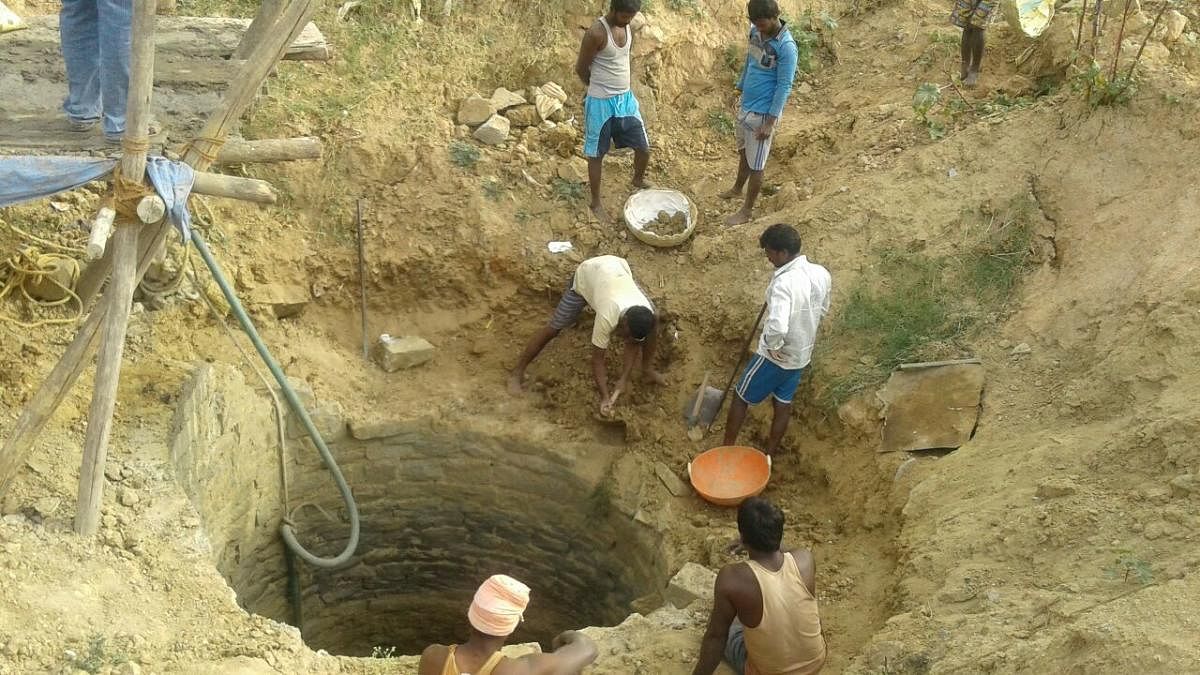
Come summer and Bengaluru suffers from an unquenchable thirst for water. The BWSSB has a finite amount of Cauvery water which it can supply. Thankfully, over the years, civil society and the residents of the city have realised that they need to help themselves by investing in rainwater harvesting. Buying tankers of water is not the solution and the tankers are becoming ridiculously expensive.
Forty-six-year old Shubha Ramachandran, who works for the biome environmental trust and who studied at IIT Powai has been working with the trust to educate people on the efficacy of rainwater harvesting. The trust was initially called rainwater harvesting club. Today, they have begun sensitizing people in the city to rejuvenate their open, shallow wells which were widespread in the city. Bengaluru has no perennial rivers to supply water and so shallow wells supplied the needs of the residents in the past.
The population is growing in the city by leaps and bounds and as a result, there is a building requirement for water. Over the years a shift in the mindset of people was, the water in shallow wells was not potable and not as pristine as borewell water. They did not know that there were shallow aquifers that kept the shallow wells fed.
As part of the work that Shubha has done with The Biome Environmental Trust, they have observed that by digging recharge wells, the groundwater table was rising with rainwater harvesting. This, in turn, charged the shallow wells and by putting water back into the ground, they saw an appreciable rise in the water table. One cannot just exploit the groundwater table, one has to replenish it too, as the water is finite, she says.
The rejuvenation of already existing old shallow wells has brought about a great interest in the city.
The team of 40-50 well diggers that the trust has been working with, were asked in an exercise to mark a map of Bangalore with pink spots, so they could see where the wells were located. It was interesting to see that the pink spots were found across the city. That showed that the local populace had realised the efficacy of rejuvenating their old shallow wells.
Today WhatsApp is a great platform to connect well-diggers and the public with Shubha and her group. They do not have to personally supervise every project as Whatsapp connects the client, the volunteer and the digger. Well-digging is a skilled profession and their diggers have the required experience, as they have to dig into the depths of 20-30 feet by hand.
This has brought back work for this group of well-diggers, who are now crisscrossing the city, uncovering the most beautiful, unused wells and springing them back to life and regular use. Shubha reveals that these wells can be found in the most unexpected spots in the city.
A handsome stone-walled well was found recently in the most crowded spot in Adugodi. This 60ft deep and 30ft diameter well is near the Adugodi police station, off Hosur Road. The well used to be a source of water for 100+ homes in the neighbourhood, and with maintenance —it can continue being so. Currently, the well has about 20ft-30ft of water.
While there are many wells being dug and rejuvenated, it is estimated there are already one and a half lakh wells in the city. The campaign that the Trust and Shubha are running is called a “Million Wells in Bangalore”. So, there are eight and a half lakh more wells which need to be dug if the campaign is to be successful.